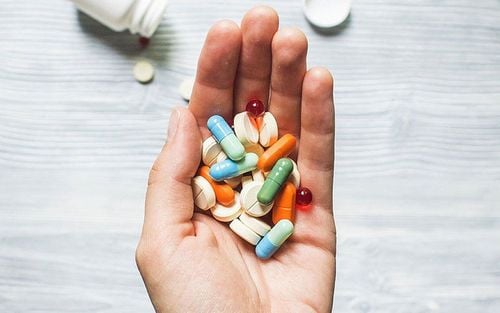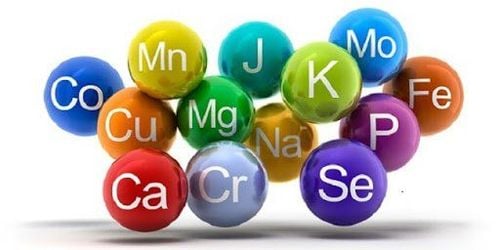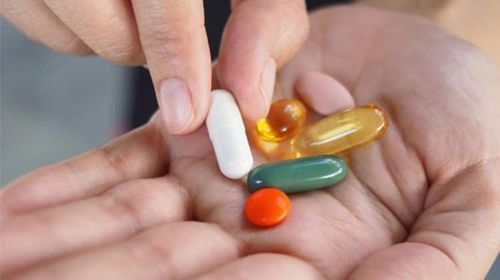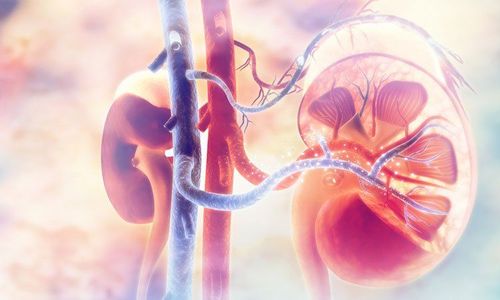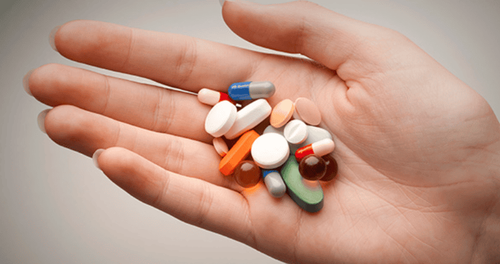This is an automatically translated article.
The article was professionally consulted by Master, Doctor Nguyen Thi Thanh Thuy - Endocrinologist - Dialysis - Kidney Transplant - Department of Medical Examination & Internal Medicine - Vinmec Central Park International General Hospital.Acute kidney injury is a sudden decline in kidney function, also known as renal failure. Acute kidney injury often occurs with another medical condition, especially during hospitalization. When suffering from acute kidney injury, the patient needs to go to the hospital as soon as possible, otherwise it will affect the ability to restore kidney function.
1. Kidney function
Filter waste products in the blood and remove them from the body through urine; Control blood pressure; Stimulates bone marrow to proliferate red blood cells, reducing the risk of anemia; Balance salts and electrolytes.2. What is AKI Acute Kidney Injury?
Acute kidney injury is a sudden decline in kidney function that causes an imbalance of salts and electrolytes in the body. The patient should be treated as soon as possible. If this condition is prolonged, it can cause salt overload or metabolic acidosis, affecting the functioning of most organs in the body such as: heart, lungs, brain...If chronic kidney disease is too much When kidney damage occurs slowly over many years, acute kidney injury is damage that occurs suddenly and has a rapid impact on the patient's health.
3. Risk of acute kidney injury

Những bệnh nhân trên 65 tuổi, đang mắc bệnh nặng có nguy cơ cao mắc tổn thương thận cấp tính
Some factors increase the risk of acute kidney injury including:
People over 65 years old; People with diabetes, liver disease, heart failure; People who are on rehydration therapy; People with severe infections; Effects of certain drugs; People with chronic kidney disease; People who are dehydrated; People who have ever had acute kidney damage. Young children can also develop acute kidney injury when:
Dehydration due to severe diarrhea; Rehydration therapy; Low blood pressure; Blood cancer ; Severe infections; Glomerulonephritis .
4. Classification of acute kidney injury
Acute kidney injury is divided into 3 types:Prerenal injury: As the kidney responds to hypovolemia, the renal structure remains intact; Kidney damage: Due to inflammation, anemia or nephrotoxic substances, kidney structure and function are damaged; Post-renal damage: Due to urinary tract obstruction.
5. Causes of acute kidney injury
5.1. Pre-renal Volume reduction:Renal: Due to the effect of diuretics, polyuria; Gastrointestinal tract: Vomiting a lot, diarrhea; Percutaneous: Burns, Stevens-Johnson syndrome; Hemorrhage; Acute pancreatitis . Decreased cardiac output:
Heart failure; Pulmonary embolism ; Acute myocardial infarction; Severe heart valve disease. Vasodilation: Infection or anaphylaxis ...
Incoming arteriolar constriction:
Hypercalcemia; Drugs: NSAIDs, contrast agents, Amphotericin B... Hepatorenal syndrome. Dilating arterioles: Infection, heart failure, liver failure.
5.2. In the kidney Renal vessels:
Renal artery occlusion due to embolism, thrombosis, vasculitis... Renal venous thrombosis; Small vessel disease; Disseminated intravascular coagulopathy; Preeclampsia ; Malignant hypertension. Glomerular:
Goodpasture syndrome; Glomerulonephritis: Systemic lupus erythematosus, primary membranous proliferative glomerulonephritis, postinfectious glomerulonephritis; Renal tubules: Usually caused by anemia or toxic substances; Tumor lysis, intravascular hemolysis, contrast agents, Lithium, Methotrexate,... 5.3. Post-renal Severe infection; Dehydration; Heavy bleeding; Low blood pressure; Kidney disease; Contrast agents.
6. Symptoms of acute kidney injury
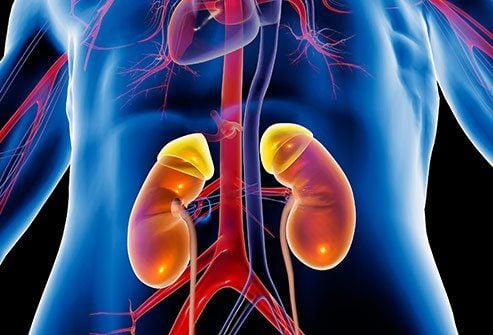
Tổn thương thận cấp tính có thể không có triệu chứng rõ ràng
Fatigue; Vomiting; Anorexia; Decreased urine output; Shortness of breath; Leg swelling.
7. Diagnosis of acute kidney injury
When there are signs of acute kidney damage, the patient will be assigned to do blood tests and urine tests. If urine is small, urine dipstick can be used to evaluate the amount of protein, sugar, blood cells; The creatinine test will help evaluate the filtering function of the kidneys; Ultrasound helps to observe kidney images, detect obstruction sites, evaluate urinary system obstruction; In addition, the patient may be assigned to perform some other tests to find the cause of the disease such as X-ray ...8. Treatment of acute kidney injury
There is no specific treatment for acute kidney injury. Patients will be continuously monitored to control complications of the disease. Patients may need fluids and follow a diet that's balanced with protein and minerals, and doesn't take all medications and foods that can damage the kidneys. The patient may be given medication to treat the underlying cause.If the amount of salt and electrolyte balance in the body is not stable, the doctor will give oral or intravenous supplementation.
In more severe cases, the patient may need hemodialysis.
Master. Doctor. Nguyen Thi Thanh Thuy is a nephrologist with more than 15 years of experience in diagnosing and treating medical kidney disease, hemodialysis, peritoneal dialysis, pre-transplant screening and post-transplant monitoring. Currently, Dr. Thuy is working at the Department of General Internal Medicine - Vinmec Central Park International General Hospital.
Please dial HOTLINE for more information or register for an appointment HERE. Download MyVinmec app to make appointments faster and to manage your bookings easily.




